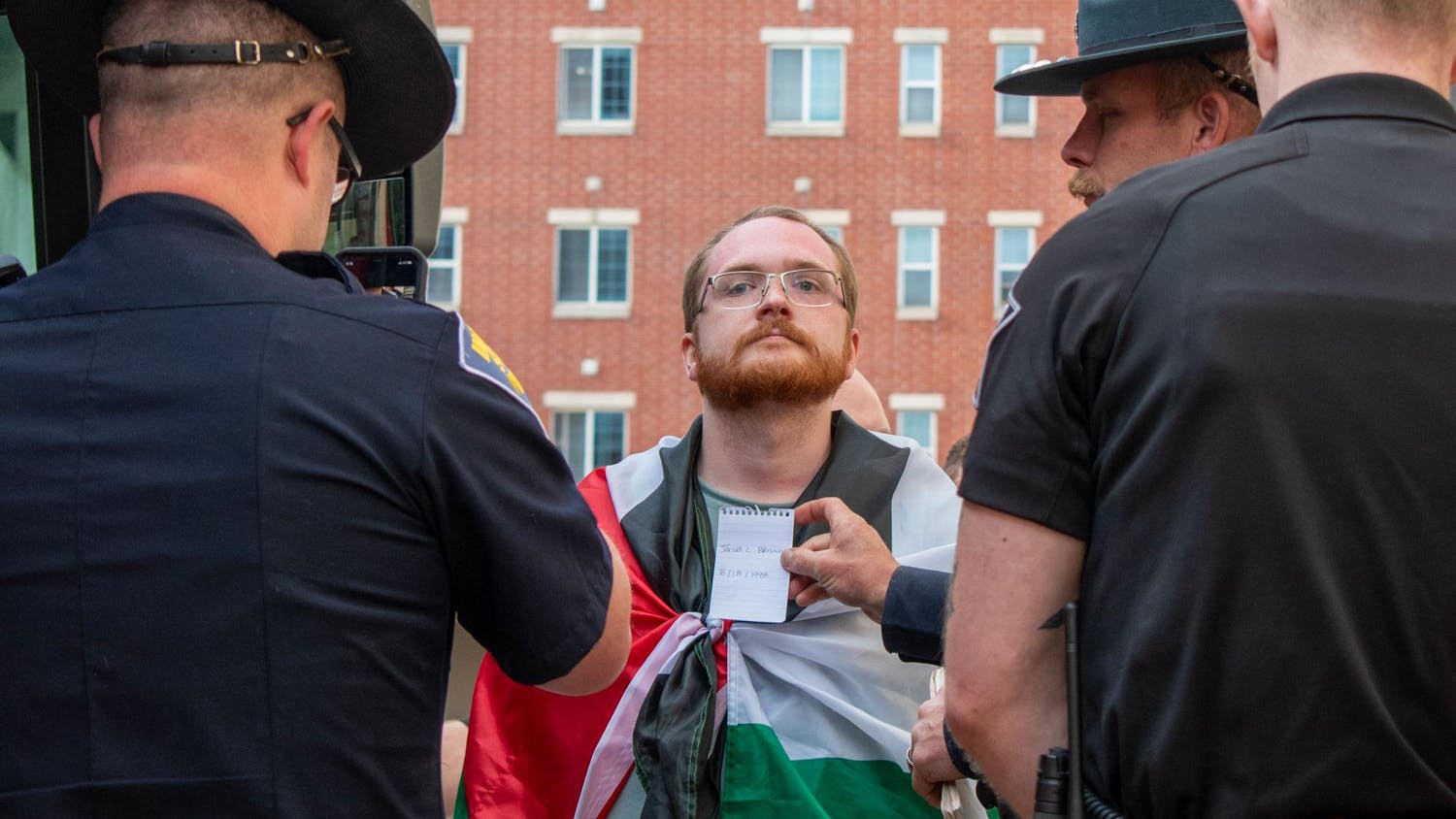The U.S. ambassador to Mongolia said she hopes the two nations can regard each other as "friendly neighbors" Friday at the annual Mongolia Society Conference. \nAmbassador Pamela Slutz and Tserendorj Jambaldorj, minister-counselor for Mongolia and deputy chief of mission to the United States were two of the dignitaries to attend the meeting which IU hosted in conjunction with the Central Eurasian Studies Conference. Bloomington last hosted the Society three years ago.\n"In the 16 years since the establishment of diplomatic relations (between the U.S. and Mongolia) ... our relationship has broadened and deepened," Slutz said. "You'd think that would be unusual -- Mongolia and the U.S. share no common borders -- but we do share a lot of common values."\nThe conference featured a variety of experts on the region, ranging from independent scholars and university professors to Buddhist monks from Mongolian Buddhist College and Arvijikhui Monastery. In addition to paper and research presentations, attendees also viewed films and listened to musical performances. The performance "Silk Road: A Musical and Cultural Journey," which featured musicians and performers from Inner Asia, concluded the weekend's events. \n"Small nations have always viewed major powers' policies with apprehension," Jambaldorj said. "But things are different in the case of Mongolian-U.S. relations. There is no (negative) legacy in the relationship between Mongolia and the United States."\nJambaldorj added he was confident that U.S.-Mongolia relations would be expanded in all sectors but urged for more cultural exchanges through art performances and exhibitions. He also cited the rare and unique tradition of 'throat singing,' which is only found in certain northern Mongolian regions such as Buryat and Tuva. \n"It's very difficult for smaller countries to introduce themselves ... especially to the general public," he said. "The Mongolian Society is one channel that improves exposure."\nHenry Schwarz, professor of Mongolia and modern China studies at Western Washington University, echoed Jambaldorj's sentiments but also acknowledged the lack of coverage on the land locked nation, which is a part of the U.S.-led coalition for the war in Iraq.\n"If Mongolia is not in the news today then there was nothing 30 years ago," Schwarz said. "I'm very happy that things are going in the right direction ... each year we have more papers and more panels. The general public might not be aware of it but the academics are."\nSchwarz, who has been president of the Society since 1998, suggested that one reason for the lack of awareness among the American public could be the small Mongolian population living in America.\n"(In America) we have 'China towns' and 'Korea towns'... people are aware of those countries because of face to face interaction," he said. "We don't have that with Mongolia. Mongolians won't be as visible (because of their numbers)."\nAfter gaining its independence from Chinese rule in 1921, Mongolia established a communist government in 1924 with the help of the Soviet Union. It was not until 1990 that the formerly communist Mongolian People's Revolutionary Party gradually began to hand over power to the Democratic Union Coalition. The recent elections have led to an even split between the two parties.\n"The June 27 parliamentary election this year served to highlight the need for continual reform… of Mongolia's democratic process," Slutz said. "It's going to be an interesting challenge for Mongolia to try and craft this (government)."\nSlutz, who has examined Mongolia's electoral process as an election observer, maintains that the democratic process need to be more transparent, although the system is often better than many other countries in the region.\n"They've had eight elections now. All of them have been peaceful, not all have been free and fair," she said. "It often serves as a role model for other Central and East Asian countries struggling to achieve the same goals."\nJambaldorj also said the process is not perfect but argued that it shows promise.\n"(The transition) to a democracy and a market-oriented economy was not an easy, smooth process. Currently, more than 75 percent of Mongolia's domestic production is produced by the private sector," he said. "It is the practice of democracy that makes a country ready for democracy."\nMongolian exports to the U.S. are largely textiles and garments. \nThe speakers at the conference also addressed terrorism and the war in Iraq.\nJambaldorj, who took office in September of 2001 just 10 days before the attacks, stated that the country had been "relatively free" of terrorist attacks, despite its support of the war in Iraq and the 'war on terrorism.'\n"Many things have changed since the Sept. 11 terrorist attacks, especially regarding U.S.-Mongolia relations," he said.\nAmbassador Slutz acknowledged Mongolian support for the war in Iraq, stating that the U.S. had started to help Mongolia develop its peacekeeping abilities since 1997.\n"Since 2000, the U.S. has provided Mongolia with over $2 million dollars in assistance to the Mongolian Armed Forces to help them develop U.N. standard international peacekeeping capability," she said. "Since August 2003, Mongolia has sent over 400 peacekeepers to Iraq."\nMongolia also sent two teams of advisors to Afghanistan and currently has 120 peacekeepers on the ground in Iraq. \n"The deployment of these troops is the first instance in modern times that Mongolian soldiers have gone abroad," Slutz said.\n-- Contact staff writer Obaid Khawaja at okhawaja@indiana.edu.
Ambassadors seek enduring friendship
Annual conference focuses on U.S.-Mongolian relations
Get stories like this in your inbox
Subscribe



